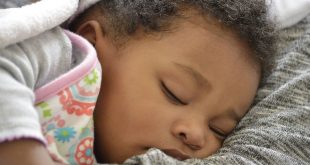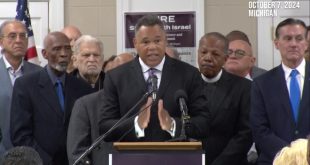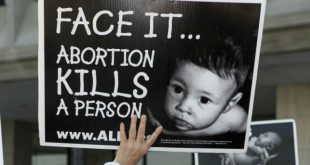UPDATE 4/6: The SBA issued a final interim rule (PDF) for the Paycheck Protection Program and an FAQ guide (PDF) with regard to churches.
***
Four congressmen — two Democrats and two Republicans — came together in a bipartisan effort to ensure that houses of worship benefit under the Coronavirus Aid, Relief and Economic Security (CARES) Act, a stimulus bill President Donald Trump signed into law last week.
Under CARES, individuals and families will get cash payments, and businesses large and small will have access to loans and grants to help them stay open and retain/rehire employees. Billions of dollars will also go to state and local governments and to hospitals and public health organizations.
Congressmen Cedric Richmond, James Clyburn, Mike Johnson, and Steve Scalise, wrote a letter (PDF) to Treasury secretary Steve Mnuchin, Labor secretary Eugene Scalia, and Small Business Administration administrator Jovita Carranza, to confirm that the legislation’s relief measures will apply to houses of worship.
These entities are among certain non-profit organizations exempt from filing a Form 1023, Application for Recognition of Exemption Under Section 501(c)(3). But it’s uncertain whether those exempt from filing this form will get equal access to the programs under CARES. An excerpt (emphasis added):
“In the midst of this crisis, Congress did not intend for a non-profit organization’s eligibility for this assistance to hinge on whether it previously submitted a form it was not legally required to submit.
“As you know, for federal income tax purposes, churches and other places of worship are treated as organizations described in section 501(c)(3) of the Internal Revenue Code without applying for a formal exemption determination letter. Because of this, many smaller and independent houses of worship have never formally applied for and paid the fee to receive an exemption determination letter. Although some houses of worship are included in group exemptions if a house of worship is part of a larger denominational organization, many smaller congregations do not have such an affiliation. Section 1102 of the CARES Act defines non-profit organization as “an organization that is described in 501(c)(3) of the Internal Revenue Code of 1986 and that is exempt from taxation under section 501(a) of such Code.” This definition clearly requires that non-profits which meet the delineated criteria be deemed eligible; possession of a formal IRS exemption determination letter is not an additional criterion, and adding it administratively would be contrary to the plain meaning of the text of the statute.”
In essence, these lawmakers are asking administration officials to cut through the red tape and provide houses of worship and other organizations not required to file Form 1023 with economic relief as intended in the measure.
“In so many places, these houses of worship are also the heart and soul of their respective communities, providing leadership, spiritual guidance and a sense of belonging for countless Americans. In times of disaster, our faith communities are the primary providers of charitable giving, emotional support and volunteer efforts.”
 Black Community News News and Commentary for Christians
Black Community News News and Commentary for Christians




Churches are already tax exempt. Trap houses like churches should not get one dime of relief money. Not one dime.
Godspeed this effort.